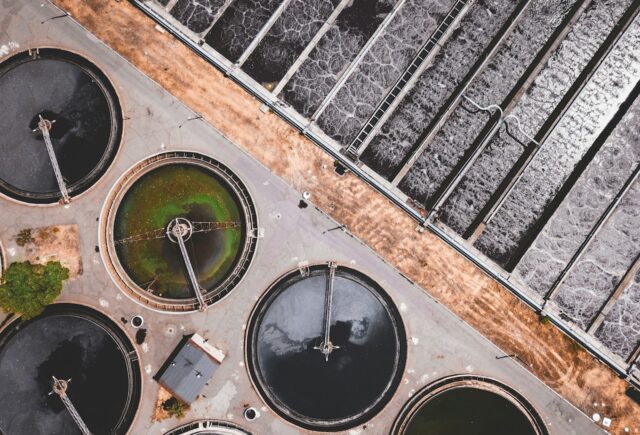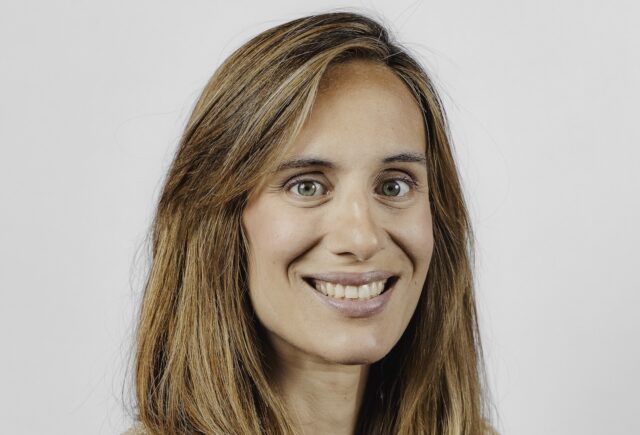Vivianne Infante, director of the Africa Resilience Investment Accelerator (ARIA), explains why “collaboration means action”, as she directs capital to markets often “below the investment radar”.

In brief
- ARIA brings together 16 prominent DFIs with two key sponsors – British International Investment (BII) and FMO, the UK and Dutch DFIs.
- Vivianne Infante, a director of Africa coverage at BII, has been appointed as ARIA’s director.
- ARIA aims to source investment opportunities and “catalyse capital flows into impactful, scalable businesses” in frontier markets.
- For its DFI members, the organisation addresses the specific challenges associated with the previous lack of local presence.
The Africa Resilience Investment Accelerator (ARIA) was created in 2021 when the UK government hosted the G7 summit. The platform brings together 16 prominent development finance institutions (DFIs) including the US International Development Finance Corporation (DFC), France’s Proparco, Swedfund, International Finance Corporation (IFC), the African Development Bank (AfDB), and the European Bank for Reconstruction and Development (EBRD).
But there are two key sponsors – British International Investment (BII) and FMO, the UK and Dutch DFIs.
ARIA initially received funding from BII Plus, BII’s technical assistance facility. Boosting African resilience is a major theme for BII, and Vivianne Infante, a director of Africa coverage at BII, has been appointed as ARIA’s Director.
She says: “Frontier markets critically need capital to provide jobs and promote economic growth. Through its activities, ARIA aims to source investment opportunities and catalyse capital flows into impactful, scalable businesses in markets that often fall below the investment radar.”
Before joining BII, Infante worked with the Nigerian Sovereign Wealth Fund, an impact investor in West Africa. She joined BII in 2016 in the Democratic Republic of Congo, and has served in a number of other countries including Ethiopia.
“Living in these countries has developed a passion for the continent and its possibilities,” she says. “In Ethiopia, I had the chance to participate in key investments, most notably the Safaricom Ethiopia investment, which aims to support Ethiopia’s digital transformation and positively enhance livelihoods.”
Clear priorities
Although ARIA is currently in its pilot phase, Infante has clear priorities.
The focus countries include Sierra Leone, Liberia, Burkina Faso, the Democratic Republic of Congo, Ethiopia, and Benin. Infante argues: “Because of information gaps and perception challenges, many of these frontier markets are often misunderstood despite being economies with tremendous growth opportunities. Investments in frontier economies can be perceived as having more complex environmental, social, and business integrity concerns than…more mature business environments.”
To help unlock longer-term funding, ARIA aims to play an active role in supporting companies with the opportunity to access DFIs’ funding. It will serve as a single point of contact for interacting with the community of DFIs. “Rather than navigating multiple institutions, companies can rely on ARIA’s network and relationships with DFIs to facilitate their engagement with DFIs, saving time and effort,” says Infante.
The platform also provides technical expertise to companies, such as help preparing business plans or financial accounts. This is key in smaller economies and conflict-affected states, where there has been limited exposure to the requirements of international investors.
“ARIA tries to challenge the perceptions of risk and lack of investment opportunities in the frontier markets by bridging information asymmetries and showcasing positive stories of investing and potential impact in these markets,“ Infante continues. “Our aim is to get more investors interested in supporting the many ambitious entrepreneurs and companies generating innovative ideas that we want to see grow and succeed.”
Helping DFIs in a challenging environment
For its DFI members, ARIA addresses the specific challenges associated with the previous lack of local presence. “Our experience investing in frontier and conflict-affected states is that they are much harder to understand than other markets,” Infante continues. “Without people working on the ground, it is difficult to understand the opportunities the markets have to offer. With local in-country representation, members of ARIA will benefit from the platform to identify trusted local actors and reliable sources to navigate the pathway to investing in these geographies, which they may not be able to find independently.”
The platform’s information sharing and tailored toolkits for each market aim to help DFIs to improve investment strategies and build investment pipelines, more aligned with the needs of local partners. ARIA offers ongoing support throughout the investment journey, from deal sourcing to due diligence and deal structuring for optimal development impact.
“Challenging investment landscapes in these geographies often incur longer investment periods and high transaction costs,” says Infante. “DFIs need to be able to adjust their investment approach and deploy smaller ticket sizes as the frontier markets are often smaller. Through collaboration, DFIs can pool resources and knowledge to have well-informed investment decision making and maximise their impact.”
She points out sectors like infrastructure or extractive industries present many problems, including opportunities for corruption or political interference. She adds: “Emerging sectors and smaller businesses often fall below the radar and tend to provide goods or services for which there is unmet demand. Targeting businesses in these sectors allow for greater diversification and opportunities to invest in a surprising range of impact-driven companies.”
Future outlook
“To me, collaboration means action” Infante affirms. “Through ARIA, DFIs that previously did not have in-country representation in some of Africa’s presumably ‘hard to reach’ markets can now do so—contributing to the platform’s objective of unlocking investment and building social and economic resilience in frontier economies. “
ARIA plans to hire independent advisors acting as country representatives to represent each of the six priority markets. These country reps will coordinate investment activities, provide targeted coverage, develop expertise on local markets, and arrange country missions.
Looking to the future, Infante says ARIA will seek “to dispel the myth that investing in frontier markets is difficult and that investment opportunities are hard to come by. Investing in frontier markets requires patience and the ability to look beyond the challenges towards their opportunities”.






